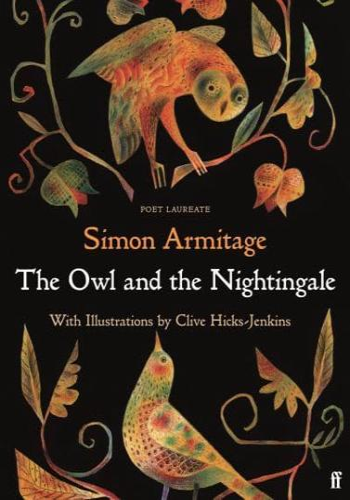SHORTLISTED FOR THE DEREK WALCOTT PRIZE FOR POETRY
It is the current Poet Laureate who has done the most to bring medieval poetry to contemporary audiences . . . in its own eccentric way, [The Owl and the Nightingale] is every bit as enticing as Gawain . . . it is arguably the greatest early Middle English poem we have. Prospect
A graceful, elegant translation. Guardian
Following his acclaimed translations of Sir Gawain and the Green Knight and Pearl, Simon Armitage shines light on another jewel of Middle English verse. In his highly engaging version, Armitage communicates the energy and humour of the tale with all the cut and thrust of the original. An unnamed narrator overhears a fiery verbal contest between the two eponymous birds, which moves entertainingly from the eloquent and philosophical to the ribald and ridiculous. The disputed issues still resonate - concerning identity, cultural habits, class distinctions and the right to be heard. Excerpts were featured in the BBC Radio 4 podcast, The Poet Laureate Has Gone to His Shed. Including the lively illustrations of Clive Hicks-Jenkins, this is a book for the whole household to read and enjoy.







